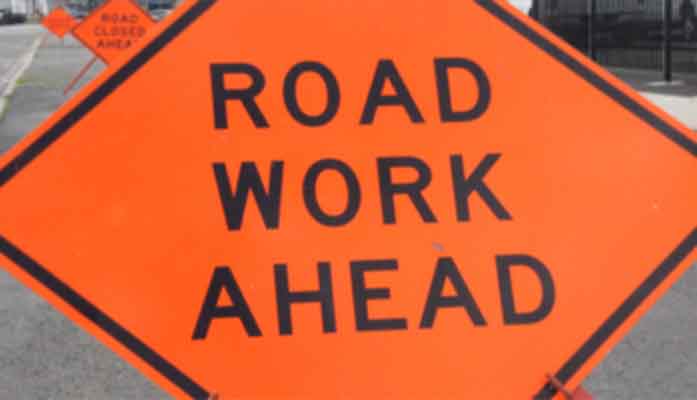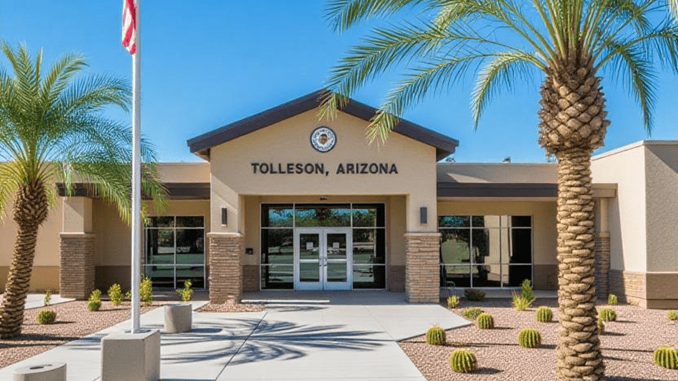
by Jonathan Eberle | Dec 10, 2025 | News
By Jonathan Eberle |
The Arizona Corporation Commission recently approved an amendment from Chair Kevin Thompson that he claims cuts more than half of the Arizona Public Service Company’s proposed budget for demand-side management and energy-efficiency programs—removing roughly $51 million in annual surcharges that would have been passed on to ratepayers.
The vote comes as the Commission continues the process of repealing a 2010 energy-efficiency mandate that has driven more than $1 billion in cumulative surcharges on customer bills over the past 15 years. Those surcharges have funded utility-run programs intended to reduce energy consumption and defer the need for new power generation.
APS’ amended 2025 Demand Side Management (DSM) and Energy Efficiency (EE) plan sought $90.9 million—an increase from the $79.4 million approved in 2022. Commissioners unanimously rejected APS’ proposed funding increases for several existing and new programs. Thompson said the cuts were necessary to rein in programs that had expanded far beyond their original purpose.
“I support energy efficiency and demand side management programs that reduce the need for additional generation and lower the costs for all ratepayers,” Thompson said. “But APS’ annual budget for these programs had become a bloated Christmas tree of incentives and rebates for special interests and customers who should be paying for these upgrades on their own.”
According to Thompson, previous Commissions allowed the DSM/EE program to grow beyond its intended goals, resulting in programs that offered rebates for equipment ranging from horticulture fans and livestock ventilation systems to incentives for electric golf carts, off-road utility vehicles, EV charging stations in multifamily buildings, and advanced power strips. The Commission also ended a long-standing practice of providing incentives to home builders and contractors for installing energy-efficient appliances—upgrades already mandated elsewhere in state law.
APS had also proposed new incentives for builders, including a $1,000 rebate per home for installing ENERGY STAR NextGen-certified systems requiring connected heat pumps, water heaters, and smart thermostats. The company had additionally sought to increase its “EV-ready home” incentive from $100 to $200. All of those proposals were rejected.
With Thompson’s amendment, the budget was cut by more than 50%. The approved spending plan now focuses on what commissioners described as core, ratepayer-benefiting programs. Thompson said the revised plan maintains assistance for vulnerable Arizonans while delivering broad relief to all APS customers through lower surcharges.
“We have accomplished a major course correction,” he said, “one that will save APS ratepayers more than $50 million in annual costs while preserving programs that truly help the most vulnerable members of our society.”
Jonathan Eberle is a reporter for AZ Free News. You can send him news tips using this link.

by Jonathan Eberle | Dec 9, 2025 | News
By Jonathan Eberle |
Arizona Senate Republicans are raising alarms over potential budget cuts that could jeopardize long-planned safety and expansion projects along State Route 347, a vital corridor connecting the fast-growing city of Maricopa to the Phoenix metropolitan area.
Sen. David Farnsworth (R-LD10), who chairs the Senate Appropriations & Transportation Committee, and Senate President Pro Tempore T.J. Shope (R-LD16) said Friday that they are working to ensure the Legislature preserves funding for the highway in the upcoming session. The push comes as SR 347 faces increasing traffic demands and a long history of serious crashes, including more than 300 collisions at the Riggs Road intersection alone.
More than three-quarters of Maricopa households depend on SR 347 for daily commutes. Yet the roadway has not been significantly widened since the late 1990s, despite dramatic population growth. Maricopa, which had roughly 1,500 residents in 2003, now exceeds 80,000.
Plans for the corridor include widening the entire highway, building a new overpass at Riggs Road, and upgrading key intersections. The projects are backed by a combination of legislative appropriations, local contributions totaling $50 million, and revenues approved by voters through Proposition 479. Construction on the Pinal County widening segment is expected to begin in late 2026.
Farnsworth said delaying construction is not an option. “SR 347 is essential for daily life in Maricopa; we cannot afford any delays when lives are at stake,” he said. “Every improvement we make on this corridor brings us closer to preventing tragedies, supporting economic growth, and ensuring Arizona families can travel safely for generations to come.”
Shope described the funding as “a lifeline,” arguing that cuts would undermine both public safety and regional economic stability. “Every dollar represents a commitment to saving lives and strengthening our economy,” Shope said. “Protecting this funding is not only sensible fiscal policy; it is a moral obligation to every driver who relies on this corridor to get home safely.”
City of Maricopa Mayor Nancy Smith said work is already moving forward, with design nearing completion and the project out for bid. “It is critical to keep all funding in place to allow this safety and capacity project to stay on track,” Smith said. “We are incredibly appreciative of Senator Farnsworth’s attention to the importance of this project.”
Jonathan Eberle is a reporter for AZ Free News. You can send him news tips using this link.

by Jonathan Eberle | Dec 8, 2025 | Education, News
By Jonathan Eberle |
More than one hundred days after receiving a legislative request for detailed financial transaction records, the Tolleson Union High School District has yet to turn over the documents, prompting renewed scrutiny from Arizona lawmakers.
State Rep. Matt Gress (R-LD4), a Phoenix Republican who chairs the House Education Committee and co-chairs the Joint Legislative Audit Committee, marked the milestone with a sharply worded statement criticizing the district’s continued refusal to release the information.
Gress first requested electronic copies of the district’s financial transactions on August 26, following a legislative audit hearing on Tolleson Union’s fiscal practices. A follow-up letter was issued on September 17. According to Gress, the district has not complied with either request.
“In that time, the district has refused to provide electronic copies, demanded more than $26,000 in fees meant to discourage oversight, and ignored repeated clarifications,” Gress said. “No other public entity in Arizona has ever tried to block access to routine financial information.
The lawmaker said the Legislature has an obligation to track how taxpayer funds are allocated and questioned why the district is resisting disclosure of what he described as basic purchase order and transaction data. He noted that other school districts routinely produce similar exports from their financial software within days.
Tolleson Union has faced heightened public scrutiny in recent months. In November, voters rejected both a bond and budget override measure by wide margins—an outcome Gress pointed to as evidence of waning community trust. “Their message was clear: restore accountability,” he said. “A 100-day refusal to cooperate is unacceptable and cannot continue.”
Gress urged the district’s governing board to direct staff to immediately release the requested records and pledged that lawmakers would “continue pressing for these records until they are produced.”
Jonathan Eberle is a reporter for AZ Free News. You can send him news tips using this link.

by Jonathan Eberle | Dec 4, 2025 | Economy, News
By Jonathan Eberle |
Arizona State Senator Tim Dunn (LD-25) is pushing back against what he describes as misleading and poorly vetted reporting on agricultural practices in Yuma, after a recent Cronkite News article raised concerns about pesticide use and worker safety. The piece has drawn criticism from Dunn who argues it presented opinion as fact.
Dunn, who is a lifelong farmer, said the article mischaracterized common farming practices—particularly the suggestion that pesticides are applied “under the cover of darkness.” He said nighttime application is widely used because conditions are safer for both workers and the environment, with lower winds and reduced pollinator activity.
“Arizona farmers take enormous pride in the safety of their workers, their fields, and the food they produce,” Dunn said. “Seeing an article built almost entirely from an unvetted activist narrative presented as fact—and circulated statewide—is not just disappointing, it’s harmful to the families who feed this country.”
According to Dunn, the article failed to acknowledge that all pesticide products used in Arizona undergo rigorous federal review. The U.S. Environmental Protection Agency requires years of toxicology testing, environmental analysis, and worker-safety evaluations before products reach farms. Applicators must also be licensed and adhere to strict state and federal rules.
“These farmers operate under some of the toughest safety rules in the world,” Dunn said. “The article left that reality out entirely.” Dunn also challenged the story’s health claims, noting that large-scale research such as the federally funded Agricultural Health Study has not established the causal links cited by activist groups featured in the report.
“Yuma farmers feed millions of American families every winter,” he said. “The least the media can do is practice responsible journalism anchored in facts—not activist talking points dressed up as news. It’s time newsrooms, and the public institutions training future journalists, did better.”
Jonathan Eberle is a reporter for AZ Free News. You can send him news tips using this link.

by Jonathan Eberle | Dec 1, 2025 | News
By Jonathan Eberle |
A new analysis shows Arizona is among the states most vulnerable to real estate scams during the holiday season, as buyers and sellers rush to close deals before the end of the year. A study released by PPS House Buyers reviewed Federal Trade Commission data from 2022 to 2024 and found that Arizona records an average of 2.04 real estate scam reports per 100,000 residents between October and December—placing it fifth in the nation. Victims in the state lose an average of $18,025 per incident, a figure notably higher than the national average loss of $16,369.
Nevada tops the list for winter scam exposure, averaging 2.64 reports per 100,000 people during the final quarter of the year. The state also saw $1.39 million in total losses across 86 reports, with each victim losing more than $16,000 on average. Georgia and Florida follow closely behind, with 2.29 and 2.23 reports per 100,000 residents, respectively. Florida also experiences the steepest total financial toll, with annual Q4 losses topping $7.2 million.
Although Alaska ranks fourth overall, the state’s smaller population means only about 16 scams are reported each year. Still, losses total more than $170,000 annually. In Arizona, the combination of rapid population growth, high homebuyer demand, and holiday transaction pressure may be contributing to the state’s elevated risk level. The average loss per victim in Arizona—$18,025—is one of the highest among the top 10 most vulnerable states.
Colorado, South Carolina, Virginia, Missouri, and Hawaii round out the top ten, all posting scam report rates well above the national average of 1.14 reports per 100,000 residents. At the opposite end of the spectrum, North Dakota sees the fewest winter real estate scam reports—just 0.17 per100,000 residents. But despite its low report rate, the state ranks near the top in average financial damage, with victims losing an average of $76,142 per incident.
Wisconsin and Iowa follow as the second- and third-lowest states for scam frequency. Arkansas and Rhode Island complete the five states least affected by winter real estate scams, though Arkansas reports an unusually high per-victim loss of $17,828. While Nevada generates the most reports, Wyoming and North Dakota see the most severe individual financial harm. Wyoming victims lose an average of $80,694, nearly five times the national average. North Dakota follows closely at just over $76,000 per scam.
Joel Medrano, CEO of PPS House Buyers, said the combination of consumer urgency and reduced attention during year-end planning makes the holiday season particularly dangerous. “The holidays create the perfect storm for real estate scams, as buyers feel pressure to close before Christmas, and scammers exploit that urgency with deals that seem too good to miss,” Medrano said. “Anyone involved in real estate transactions should verify all parties through official channels, never wire money based on email instructions alone, and be especially cautious of deals that seem unusually urgent or pressure you to act quickly.”
Jonathan Eberle is a reporter for AZ Free News. You can send him news tips using this link.





